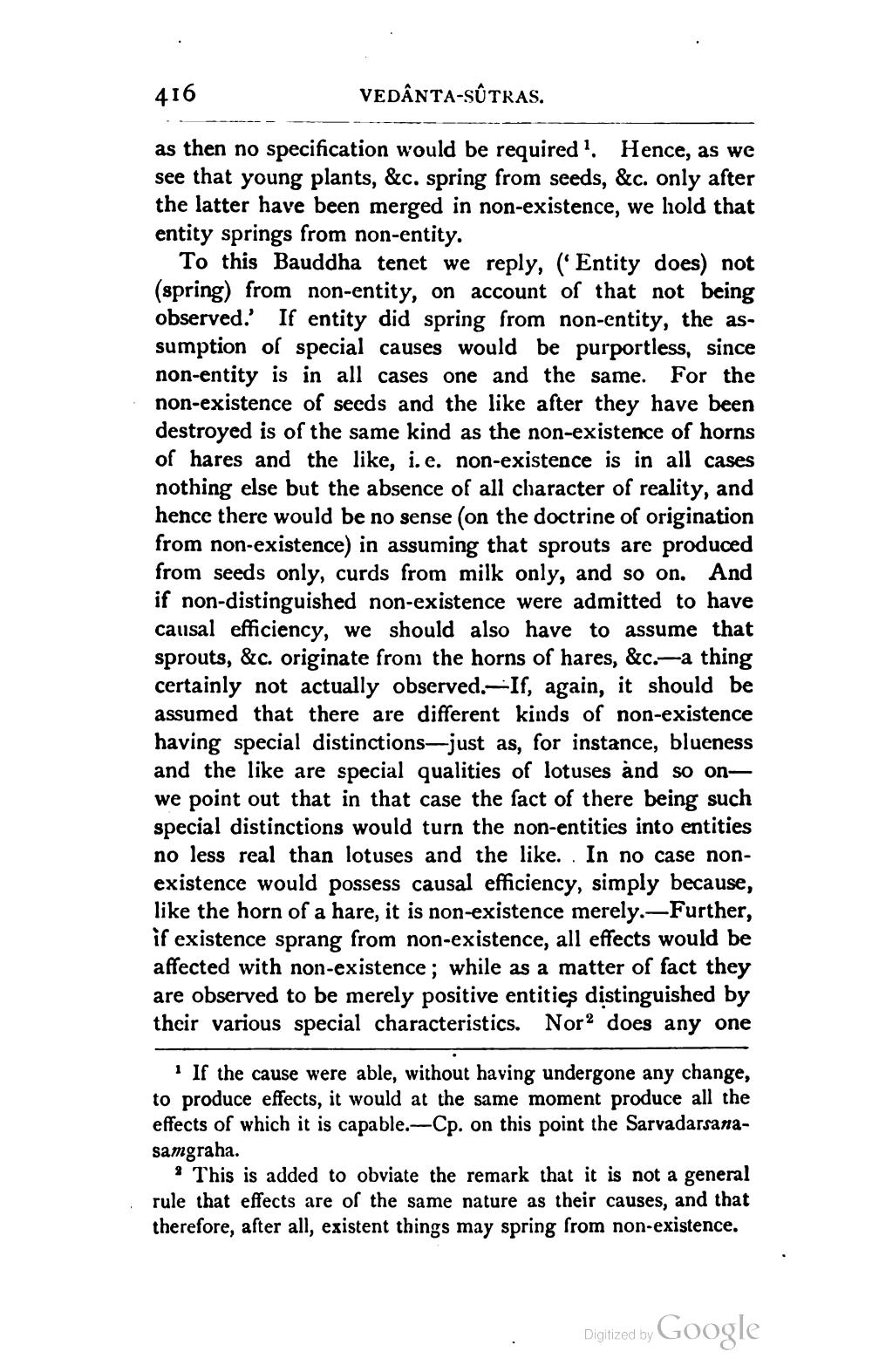________________
416
VEDÂNTA-SÛTRAS.
as then no specification would be required. Hence, as we see that young plants, &c. spring from seeds, &c. only after the latter have been merged in non-existence, we hold that entity springs from non-entity.
To this Bauddha tenet we reply, ('Entity does) not (spring) from non-entity, on account of that not being observed. If entity did spring from non-entity, the assumption of special causes would be purportless, since non-entity is in all cases one and the same. For the non-existence of seeds and the like after they have been destroyed is of the same kind as the non-existence of horns of hares and the like, i.e. non-existence is in all cases nothing else but the absence of all character of reality, and hence there would be no sense (on the doctrine of origination from non-existence) in assuming that sprouts are produced from seeds only, curds from milk only, and so on. And if non-distinguished non-existence were admitted to have causal efficiency, we should also have to assume that sprouts, &c. originate from the horns of hares, &c.-a thing certainly not actually observed.If, again, it should be assumed that there are different kinds of non-existence having special distinctions-just as, for instance, blueness and the like are special qualities of lotuses and so onwe point out that in that case the fact of there being such special distinctions would turn the non-entities into entities no less real than lotuses and the like. . In no case nonexistence would possess causal efficiency, simply because, like the horn of a hare, it is non-existence merely.--Further, if existence sprang from non-existence, all effects would be affected with non-existence; while as a matter of fact they are observed to be merely positive entities distinguished by their various special characteristics. Nora does any one
* If the cause were able, without having undergone any change, to produce effects, it would at the same moment produce all the effects of which it is capable.-Cp. on this point the Sarvadarsanasamgraha.
% This is added to obviate the remark that it is not a general rule that effects are of the same nature as their causes, and that therefore, after all, existent things may spring from non-existence.
Digitized by
Digitized by Google




